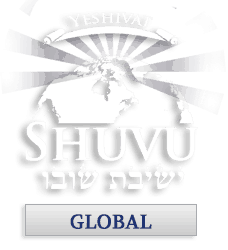וַיִּקַּ֤ח משֶׁה֙ חֲצִ֣י הַדָּ֔ם וַיָּ֖שֶׂם בָּֽאַגָּנֹ֑ת וַֽחֲצִ֣י הַדָּ֔ם זָרַ֖ק עַל־הַמִּזְבֵּֽחַ: וַיִּקַּח֙ סֵ֣פֶר הַבְּרִ֔ית וַיִּקְרָ֖א בְּאָזְנֵ֣י הָעָ֑ם וַיֹּ֣אמְר֔וּ כֹּ֛ל אֲשֶׁר־דִּבֶּ֥ר יְהֹוָ֖ה נַֽעֲשֶׂ֥ה וְנִשְׁמָֽע:
And Moses took half the blood and put it into the basins, and half the blood he cast onto the altar. And he took the Book of the Covenant and read it within the hearing of the people, and they said, “All that the Lord spoke we will do and we will hear.”
Exodus 24:6-7
This week’s Torah portion teaches us that the covenant is ratified with blood. The entire book of the covenant is read before all the people. The children of Israel then pronounce the other side of the covenant, “all that the Lord spoke, we will do and we will hear.”
Israel does not say we will hear and we will do. Rather, Israel proclaims we will do and we will hear. The Chaza”l explain that we promise to do the commandments of the covenant even though we may not understand them. Israel proclaims that it will follow the mitzvot of Hashem without explanation or understanding, simply because of faith.
Midrash Rabbah teaches that each individual at Sinai is approached by the Dibur, by the incarnation of the Word of God, and is asked. Every individual responds, I will do and I will hear. Torah teaches us that all of Israel is at Sinai, “everyone here, and everyone not here.” Everyone not here includes us living today. So the Dibur asks us individually, even today, to be part of this covenant. And with reverence, we respond, we will do and we will hear. Shabbat shalom.
